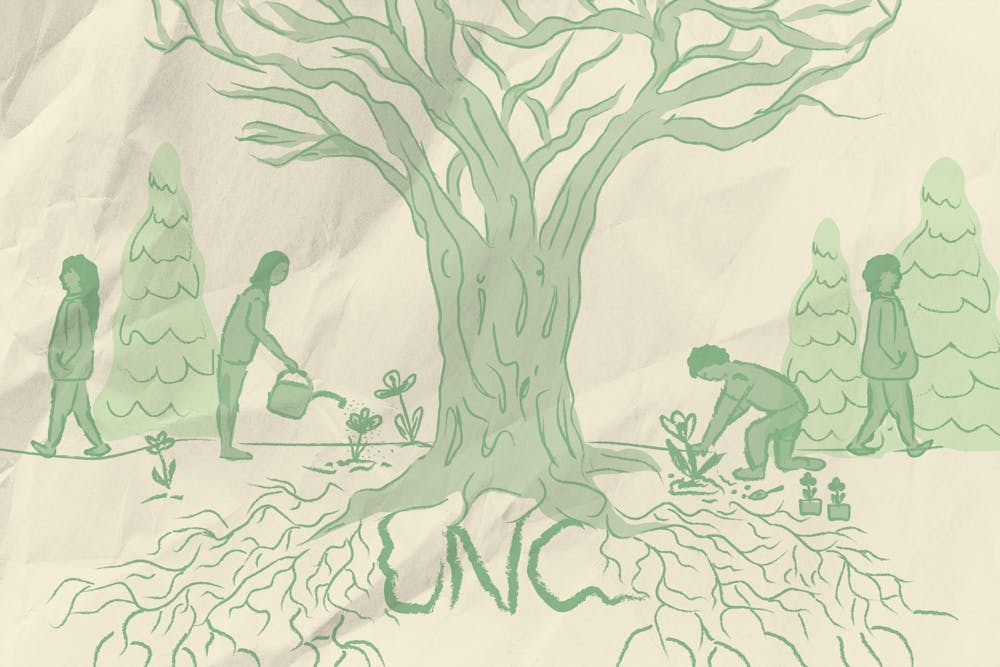Wildlife in North Carolina, and on campus, is facing extinction due to invasive species and an increase in temperatures from worldwide climate change.
According to a report by North Carolina State University, North Carolina’s climate has warmed by about 1 degree Fahrenheit over the past 120 years.
WRAL-TV also reported that North Carolina is now above the 1.5 Celsius threshold, a degree used to measure a critical point in global warming that could lead to severe weather events, species loss, rising sea levels and “widespread destruction.”
North Carolina Botanical Garden Director of Horticulture Dan Stern said that some plants are facing species extinction due to the climate crisis.
UNC junior and president of the Epsilon Eta Environmental Honors Fraternity Jadon Wellum said he has seen how UNC’s campus has been impacted by invasive species such as Wisteria.
“[Wisteria is] very beautiful, but it is, in fact, unfortunately invasive, which means it drives off native species, and that helps lower the biodiversity,” he said.
Wellum said he has noticed the plant around South Campus.
In an email statement to The Daily Tar Heel, Assistant Professor for Environmental Sciences, Engineering, and City and Regional Planning Noah Kittner emphasized the benefits to having flourishing plant life.
“Green spaces can improve mental health and reduce stress, creating a more vibrant atmosphere and contributing to campus sustainability,” Kittner wrote.




